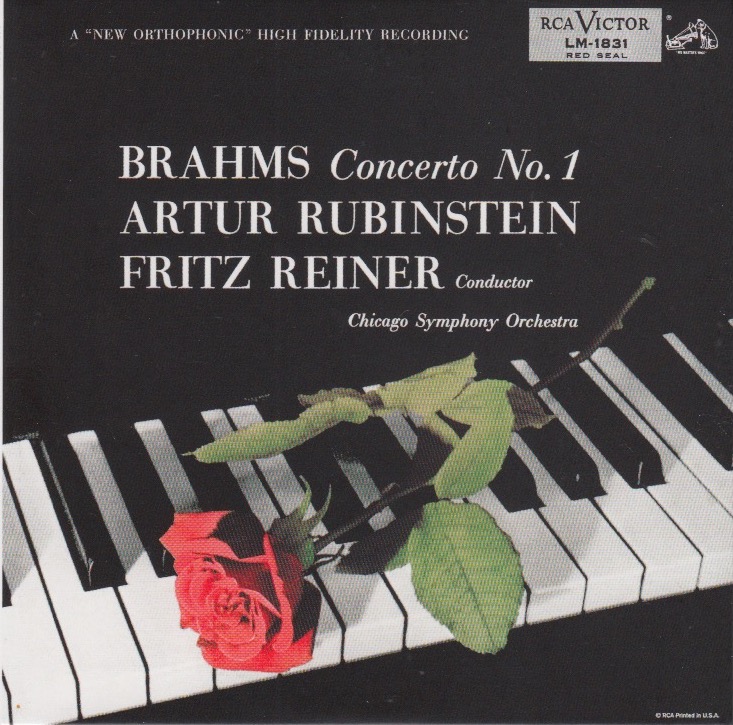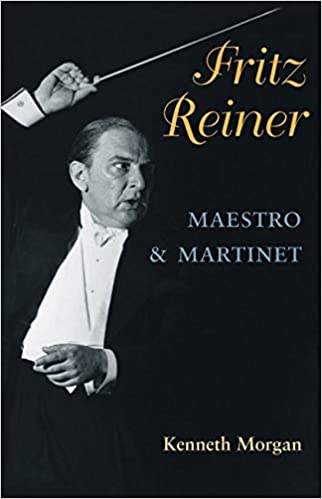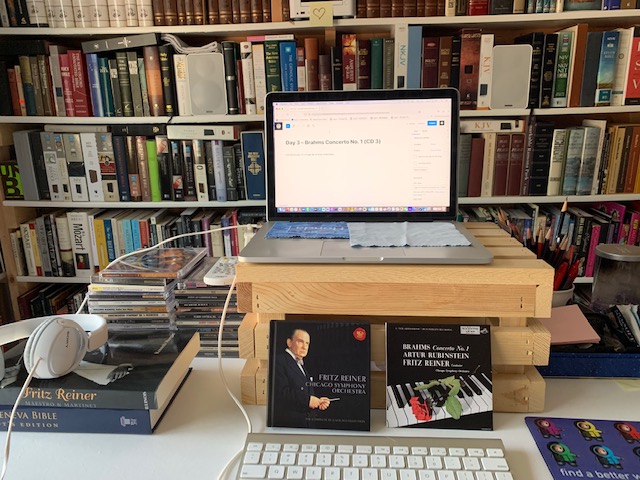
Full disclosure: I’m a huge fan of Arthur Rubinstein.
More disclosure: I’m not a huge fan of Brahms.
I could listen to Mr. Rubinstein all day long; and, in fact, I bought the Arthur Rubinstein Complete Album Collection box set in November of 2013. I paid a little over $100 for it. I just checked. It’s out of print and lists for $800 to $1,500 on various web sites. (I’m tellin’ ya, forget gold and silver; Classical music box sets are the way to go.)
There’s something magical about Arthur Rubinstein. When he enters the picture – at 3:30 into the first movement – the magic starts to happen. What was an above-average interpretation of Brahms Concerto No. 1 suddenly becomes something to which I must listen. And all because of Mr. Rubinstein.

The book Fritz Reiner Maestro & Martinet includes a fascinating anecdote about the pairing of Rubinstein and Reiner.
You’ll have to buy the book and turn to page 196 to read what happened. Suffice to say, after a particularly nasty row (if I may borrow that word from the Brits) the two parted ways and never worked together again
It’s the kind of revelation for which books like this are written, and purchased. So please let your mouse do the walking over to Amazon and buy it.
As I mentioned above, I’m not a fan of Johannes Brahms (1833-1897). I tried listening to his complete works and I got so bored I had to quit.
But this…
This is on another level. The combination of Fritz Reiner (1888-1963), the Chicago Symphony Orchestra, and Arthur Rubinstein makes this recording not only worth listening to once, but multiple times.
From its entry on Wikipedia,
The Piano Concerto No. 1 in D minor, Op. 15, is a work for piano and orchestra completed by Johannes Brahms in 1858. The composer gave the work’s public debut in Hanover, the following year. It was his first-performed orchestral work, and (in its third performance) his first orchestral work performed to audience approval.
As for the aforementioned Mr. Brahms, this is from an article about him on WIkipedia:
Johannes Brahms (7 May 1833 – 3 April 1897) was a German composer, pianist, and conductor of the Romantic period. Born in Hamburg into a Lutheran family, he spent much of his professional life in Vienna. He is sometimes grouped with Johann Sebastian Bach and Ludwig van Beethoven as one of the “Three Bs” of music, a comment originally made by the nineteenth-century conductor Hans von Bülow.
As for the aforementioned Mr. Rubinstein, this is from an article about him on Wikipedia:
Arthur Rubinstein KBE OSE GOSE (28 January 1887 – 20 December 1982) was a Polish-American classical pianist. He is widely regarded as one of the greatest pianists of all time. He received international acclaim for his performances of the music written by a variety of composers and many regard him as the greatest Chopin interpreter of his time. He played in public for eight decades.
I agree wholeheartedly about Rubinstein’s Chopin interpretations. The box set Arthur Rubinstein The Chopin Collection is 11 CDs of pure bliss. As of this writing, it’s only $23.79 on Amazon. Seriously. That’s just $2.16 per disc for some of the greatest music ever recorded. If you don’t already have it, get thee over to Amazon and buy it. Now.
If I recall correctly, and as I’m listening to this I’m remembering a few details, I don’t particularly like Brahms because his music didn’t seem melodic. It seems frenetic. Or haphazard. Or pieced together like a patchwork quilt. I know, I know. I’m oversimplifying. I’m revealing my ignorance of Classical music. But I like what I like. And something about music has to jump out at me before I give it a thumbs up.

Brahms got two thumbs down, in my book. But this performance today gets two very enthusiastic thumbs up.
The Objective Stuff
Recorded in Orchestra Hall, Chicago, April 17, 1954. Fritz Reiner was 66, Arthur Rubinstein was 67.
The Subjective Stuff
Recording quality: 5
Overall musicianship: 5
CD booklet notes: 3.5
CD “album cover” information: 4
How does this make me feel: 5
Superb album! I’ve listened to this 2-3 times and each time it amazes me, especially the third movement (Rondo – Allegro non troppo). After the dreaminess of the first movement (Maestoso), is like a kick in the butt. Stirring, majestic, and captivating.
This album is the reason why I do these projects. Highly recommended!
